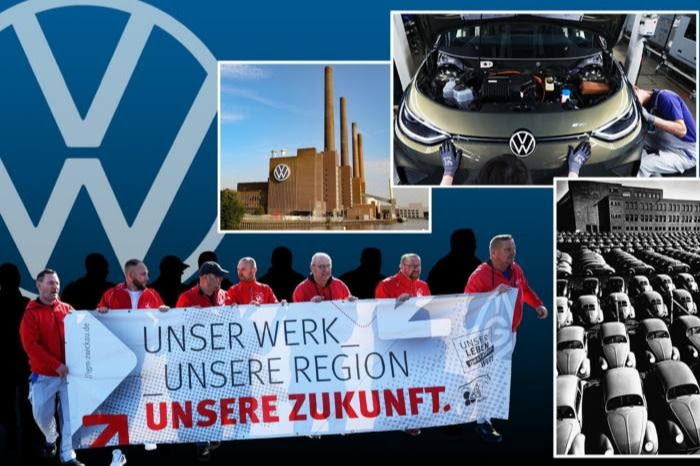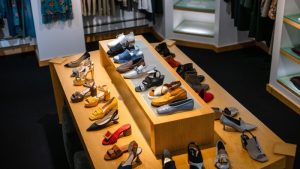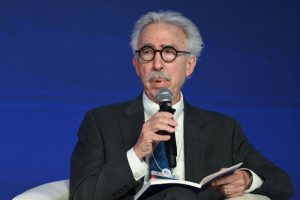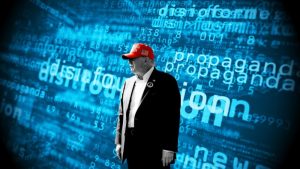Ukraine’s troops could face North Korean forces ‘in days’

This article is an on-site version of our FirstFT newsletter. Subscribers can sign up to our Asia, Europe/Africa or Americas edition to receive the newsletter every weekday. Explore all of our newsletters here
In today’s newsletter:
-
Ukraine’s troops could face North Korean forces ‘in days’
-
Chinese sanctions imperil the US’s largest drone maker
-
Volkswagen’s worst crisis in decades
Good morning. Washington and Kyiv have warned that North Korean troops are expected to enter combat alongside Russia’s army in the coming days, in what would be the first foray by a foreign military into the war launched by Moscow.
Ukrainian President Volodymyr Zelenskyy said yesterday that his army was likely to face North Korean troops in the western Russian region of Kursk in “days, not months”.
Zelenskyy’s comments were followed by a stark warning from US secretary of state Antony Blinken and US defence secretary Lloyd Austin, who said that as many as 8,000 North Korean troops had been deployed to the Kursk region.
The US had not seen the troops “deploy into combat against Ukrainian forces but we would expect that to happen in the coming days”, Blinken said.
Zelenskyy said that at least 3,000 North Koreans were at a “training camp” in the Russian region of Kursk, where his troops are occupying some 600 sq km of land taken during a surprise incursion in August.
Here’s what else we know about the activities of North Korean troops.
And here’s what else I’m keeping tabs on today:
-
Economic data: Indonesia reports October CPI inflation data and Australia publishes third-quarter PPI. S&P Global manufacturing PMI is due for China, Japan and several other Asian countries.
-
Results: Nomura, Tata Motors, Macquarie Group, Mitsui & Co and Mitsubishi report.
-
India: Financial markets are closed for Diwali.
How well did you keep up with the news this week? Take our quiz.
Five more top stories
1. Exclusive: Beijing has sanctioned Skydio, the US’s largest drone maker and a supplier to Ukraine’s military, including banning Chinese groups from providing it with critical components. The company is now rushing to find new battery providers as its chief executive said the move “makes clear that the Chinese government will use supply chains as a weapon”. Read the full story.
2. OpenAI has rolled out its online search tool in ChatGPT in a direct challenge to Google. The chatbot will combine its existing text responses with live online results, automatically searching the web based on a user’s question.
-
Apple: The iPhone-maker reported solid revenue growth in the past quarter and said customers had been receptive to new AI features for its flagship smartphone.
-
Samsung Electronics: Third-quarter results from the world’s biggest memory-chip maker fell far short of expectations as it failed to take full advantage of the AI boom.
3. Carlsberg, Estée Lauder and AB InBev have warned of a sales slump in China, underscoring the difficulty for Beijing of reviving the fortunes of the world’s second-largest economy. The chief executive of Danish brewer Carlsberg told the FT that the Chinese government’s current stimulus measures to boost flagging economic growth did not “move the needle”.
-
Chinese economy: Factory activity strengthened for the first time in six months in October, in a heartening signal for policymakers as they prepare a crucial fiscal package to boost the country’s economy.
4. Hong Kong authorities are cracking down on how banks discuss block trades with hedge funds, after a criminal case against Segantii Capital Management and its founder Simon Sadler threw a spotlight on the practice. New guidelines announced yesterday cover so-called “market sounding”, a grey area in which banks discuss upcoming or potential block trades with hedge funds in order to gauge their interest in buying the stock.
5. The Bank of Japan held short-term interest rates yesterday, but signalled that further rises were still on the horizon as prices continued to climb. Analysts said political uncertainty following Sunday’s election would “complicate” but not derail the Bank of Japan’s efforts to raise interest rates and normalise monetary policy.
News in-depth

Volkswagen is facing its most severe crisis in decades, cutting jobs and factories as it battles cheaper Chinese rivals and confronts a costly transition to electric vehicles. But the fight extends beyond Europe’s largest carmaker, shaking the pillars of Germany’s postwar Wirtschaftswunder, or economic miracle, with long-lasting implications for the country’s brand of capitalism.
We’re also reading . . .
-
Chinese EVs: What are established carmakers to do about the rise of Chinese cars? There are some options, writes Robin Harding, but none of them are good.
-
Cyber security: This may be the ultimate industry for providing very lucrative but ineffective solutions, writes John Thornhill.
-
The new face of European illiberalism: Prime Minister Robert Fico has tightened his grip on Slovakia using Hungarian leader Viktor Orbán’s playbook as inspiration.
Chart of the day
If Donald Trump wins a second term in next week’s US presidential election, discontent about high living costs will be a significant factor — and the Republican is pinning much of his campaign on it.
Take a break from the news
Here are our six films to watch this week, including Anora. Mikey Madison is an Oscar shoo-in with her bristlingly real performance as a strip-club dancer in this frantic anti-Cinderella story, our film critic Danny Leigh writes.

#Ukraines #troops #face #North #Korean #forces #days






